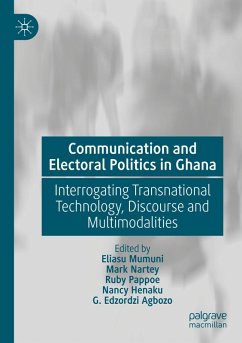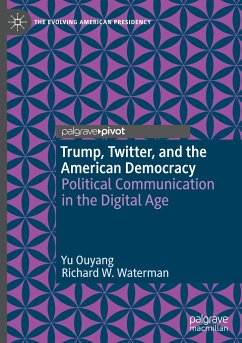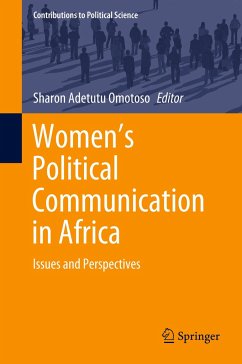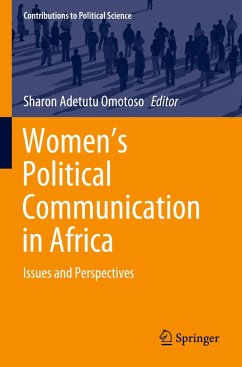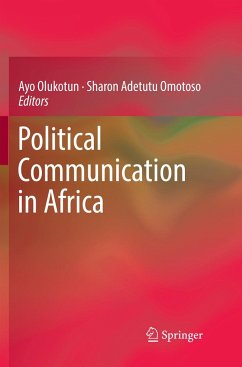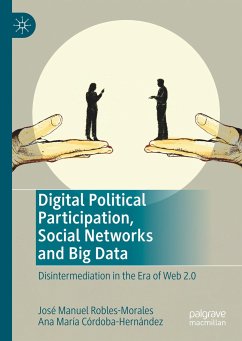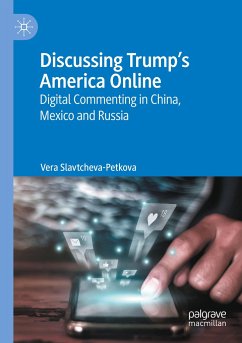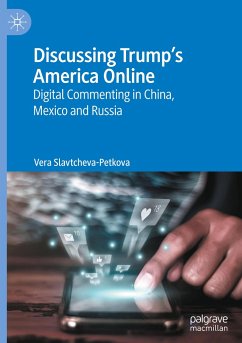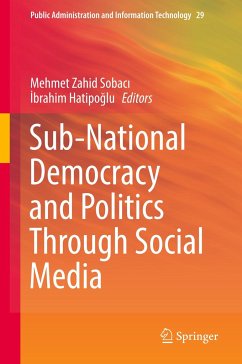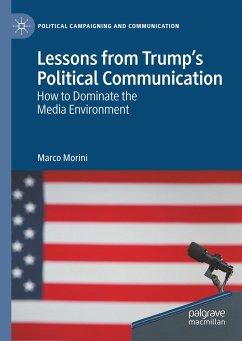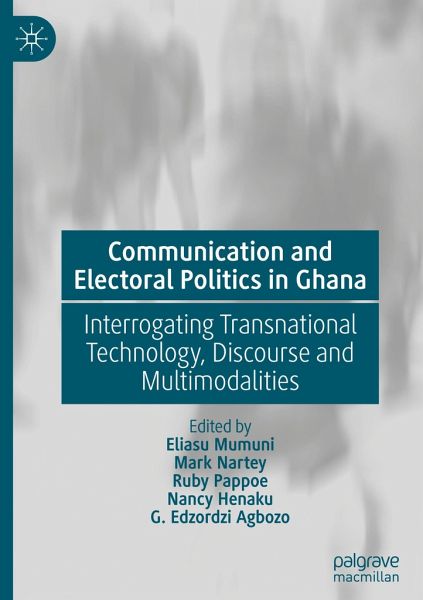
Communication and Electoral Politics in Ghana
Interrogating Transnational Technology, Discourse and Multimodalities
Herausgegeben: Mumuni, Eliasu; Nartey, Mark; Pappoe, Ruby; Henaku, Nancy; Agbozo, G. Edzordzi

PAYBACK Punkte
49 °P sammeln!
This book explores issues at the intersection of communication and African electoral politics, taking Ghana's 2020 general election as a focus of investigation.This interdisciplinary volume redresses gaps in the literature by highlighting the relevance of language and communication to electoral politics in Sub-Saharan Africa in the period of a global pandemic. The collection accounts for local influences on election discourse and illustrates how the specific context within which such discourse is enacted informs the linguistic, multimodal and technological choices of sociopolitical actors. The...
This book explores issues at the intersection of communication and African electoral politics, taking Ghana's 2020 general election as a focus of investigation.
This interdisciplinary volume redresses gaps in the literature by highlighting the relevance of language and communication to electoral politics in Sub-Saharan Africa in the period of a global pandemic. The collection accounts for local influences on election discourse and illustrates how the specific context within which such discourse is enacted informs the linguistic, multimodal and technological choices of sociopolitical actors. The non-Western perspective it adopts extends work on political communication in a context underexplored in the literature and contributes to ongoing critical conversations on the decolonial and postcolonial aspects of communication studies. Drawing on a variety of data, including political speeches, political cartoons, election campaigns and social media posts, the volume not only addresses the dearth of scholarly work on African political communication, but also demonstrates the complexity of such scholarship and its importance to a comprehensive understanding of contemporary research on language and politics. This book enriches academic and public discussions on the future of democracy across the globe from a linguistic or communication perspective, expands scholarly work on African rhetoric and underscores the importance of engaging with diverse knowledge systems, especially non-Western epistemologies.
This interdisciplinary volume redresses gaps in the literature by highlighting the relevance of language and communication to electoral politics in Sub-Saharan Africa in the period of a global pandemic. The collection accounts for local influences on election discourse and illustrates how the specific context within which such discourse is enacted informs the linguistic, multimodal and technological choices of sociopolitical actors. The non-Western perspective it adopts extends work on political communication in a context underexplored in the literature and contributes to ongoing critical conversations on the decolonial and postcolonial aspects of communication studies. Drawing on a variety of data, including political speeches, political cartoons, election campaigns and social media posts, the volume not only addresses the dearth of scholarly work on African political communication, but also demonstrates the complexity of such scholarship and its importance to a comprehensive understanding of contemporary research on language and politics. This book enriches academic and public discussions on the future of democracy across the globe from a linguistic or communication perspective, expands scholarly work on African rhetoric and underscores the importance of engaging with diverse knowledge systems, especially non-Western epistemologies.



